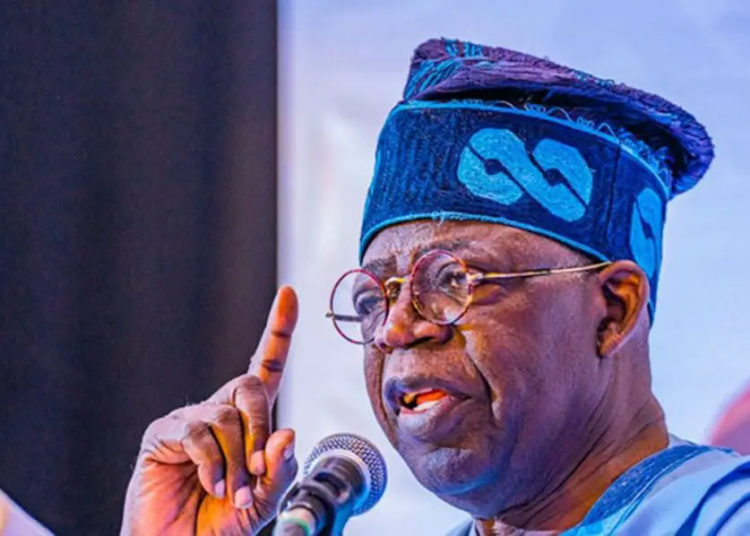Recently, President Bola Ahmed Tinubu issued an Executive Order intended, ostensibly, to transform Nigeria’s healthcare sector. The order seeks to increase local production of healthcare products, reduce medical equipment and consumables costs, and promote local investments. It is part of the Nigeria Health Sector Renewal Investment Initiative (NHSRII) and may likely address longstanding challenges and improve health outcomes for Nigerians.
One of the major challenges facing Nigeria’s healthcare sector is the high cost of medical equipment and consumables. This results from an over-dependence on imports with their foreign exchange implications. The Executive Order seeks to address this in a manner that will enhance the availability of production materials, make healthcare more affordable for Nigerians, create job opportunities, and boost the country’s economy.
Experts in the healthcare sector consider the Executive Order a relief, as it comes at a time when the cost of health insurance coverage in the country has increased. The National Health Insurance Authority (NHIA) recently announced an increase in healthcare costs, with a 60 per cent rise in capitation and a 40 per cent review in Fee-For-Service (FFS) fees. The NHIA cited several reasons for the adjustments, such as the rising cost of healthcare delivery and the need to maintain quality care provided to beneficiaries.
The increase undoubtedly raises concerns over the potential financial strain on families and businesses. It also highlights the challenges of balancing affordability with quality care. The NHIA must ensure that these increases are vital for maintaining a robust healthcare system that meets the population’s needs.
As a newspaper, we consider the Executive Order a step in the right direction for a country that has long struggled with inadequate healthcare infrastructure and poor health outcomes. It is timely because it targets boosting local industry and encouraging local manufacturing. This will create jobs, stimulate economic growth, reduce dependence on imports, s well as ensure a reliable supply of essential healthcare products.
The Executive Order introduces zero tariffs, excise duties, and value-added tax (VAT) on specified machinery, equipment and raw materials to reduce production costs and enhance local manufacturers’ competitiveness. Specified items include Active Pharmaceutical Ingredients (APIs), excipients, other essential raw materials required for manufacturing crucial health products like drugs, syringes and needles, Long-lasting Insecticidal Nets (LLINs) and Rapid Diagnostic Kits, among others.
Another key aspect of the Executive Order is the promotion of local investments in the healthcare sector. This will encourage private sector players to invest in the sector, leading to the development of more healthcare facilities and the provision of better healthcare services. It will also help to reduce the country’s dependence on foreign aid and improve the sustainability of the healthcare system.
The Executive Order further seeks to improve the quality of healthcare services in Nigeria. By increasing local production of healthcare products, the country will be able to ensure that these products meet international standards. This will help to reduce the incidence of fake and substandard drugs in the country, which has been a major challenge in the sector.
Another commendable implication of the Order is that it provides market-based incentives to encourage medical industrialisation, reduce costs of medical products through import substitution over time, create and retain economic value in the healthcare chain.
Industry watchers claim that the Order will strengthen Nigeria’s health system by addressing underinvestment and regulatory challenges, improving service delivery and health outcomes and enhancing resilience to future health crises. It may also establish market-shaping mechanisms, such as framework contracts and volume guarantees, to encourage local manufacturers.
Furthermore, it provides regulatory harmonisation and expedited approvals. This includes developing a harmonised implementation framework to guide regulatory agencies in streamlining approval processes.
Agencies like the Nigeria Customs Service, National Agency for Food and Drugs Administration and Control (NAFDAC), Standard Organisation of Nigeria (SON), and Federal Inland Revenue Service (FIRS) are mandated to ensure swift implementation. The waivers and exemptions are valid for two years from the effective date.
However, the government must provide an environment that enables smooth implementation of the Executive Order. This includes providing infrastructure and incentives for local manufacturers and enforcing regulations to ensure that healthcare products meet international standards.
In our view, the Order is a welcome development. It can potentially improve the affordability, accessibility, and quality of healthcare services in the country. The government must, however, ensure that the necessary infrastructure, power and incentives are implemented to make it a success.
We stress this point considering the crisis in the energy sector, the poor infrastructure base, the asphyxiating interest rates in banks, and other factors that have caused the massive exit of foreign investors and the collapse of local ones. This means that the Executive Order, a necessity in itself, is insufficient to guarantee a smooth switch from import dependence to a satisfactory, reliable local production and supply base.





